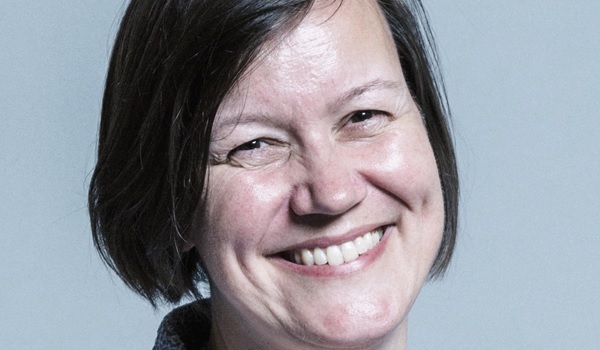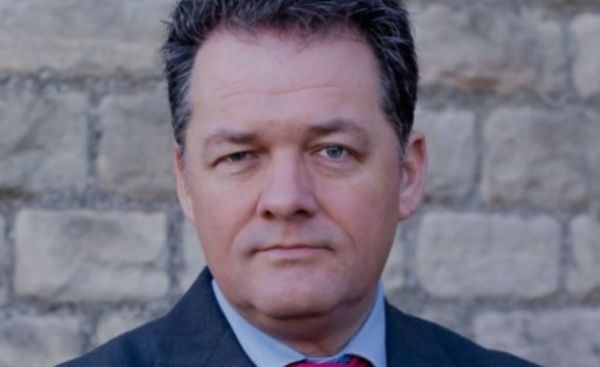MPs raise concerns over ‘worrying variations’ in police response to modern slavery
The National Crime Agency (NCA) may use its tasking powers to assign operations to forces that do not provide a “coherent response” to modern slavery, the Public Accounts Committee (PAC) has revealed.
Published on Wednesday (May 2), the Reducing modern slavery report criticises the Home Office for taking too long to understand the complexities of the crime and emphasises the importance of digitising the National Referral Mechanism (NRM).
The report also criticised the disparity in adult referrals of potential victims with three forces having made more than 900 referrals since the NRM began in 2009, while six forces have made fewer than ten in the same period.
MPs set out seven recommendations to the Government, including setting performance targets and collaborating further with the NCA, the Crown Prosecution Service, the independent anti-slavery commissioner, local forces and police and crime commissioners to address regional variations in tackling human trafficking.
PAC chair Meg Hillier said: “Victims of modern slavery can face unimaginable horrors but the Government’s good intentions have yet to result in coherent action to help them.
“Government cannot hope to target resources in an effective manner until it properly understands the scale and nature of the challenge. This crime is complex and a piecemeal approach will not cut it.
“Government must get a grip on what works and what doesn’t; when things change, it must be sufficiently informed and agile to respond.
“There are flaws to address in the action it has taken thus far. Compliance with supply chains legislation is dismal and long waits in the referrals system are compounding the distress of potential victims.
“Monitoring of victim support services is poor and there are worrying variations in the response of local police forces.”
In 2014, the Home Office estimated there was between 10,000 and 13,000 potential victims of modern slavery in the UK, and in 2013 estimated that the overall social and economic cost of human trafficking for sexual exploitation alone was £890 million.
In 2016, 80 defendants were prosecuted under the Modern Slavery Act, increasing from 26 in the previous year. The NCA also told the PAC that in the year to June 2017 there had been 231 prosecutions under the Act.
However, only a small proportion of the modern slavery offences recorded by officers produce a positive result, with just six per cent of recorded crimes being summonsed or charged.
As a result, the NCA said it would be prepared to use its “powers” to task forces, as it previously did around the issue of child abuse.
While the committee recognised that the UK is ahead of many other countries in tackling modern slavery, it highlighted that the Government had not set out how to deliver its aim to reduce the crime, adding that it’s only estimate of prevalence still relates to 2013.
The Home Office told the PAC it is currently looking to develop its performance framework towards a more holistic approach, as it currently focuses too much on law enforcement, and not enough on information about the victim and how they progress through the system.
Examples of this work include the establishment of a Joint Strategic Analysis Centre and the production of a report into the typology of modern slavery, although it said the planned digitisation of the NRM would further increase the understanding of the scale of the crime.
The current referral system was described by the Home Office as “clunky”, and a review of the NRM in 2014 found that it was inefficient and needed to be overhauled.
In two-thirds of cases in which potential modern slavery victims were referred in 2016/17, it took longer than 90 days for a conclusive grounds decision to be made.
The committee told the Government to write to them within six months outlining what actions will be taken to reduce the time potential victims wait for a decision.
The Home Office has insisted that investments have been made to increase staff numbers and reduce the current backlog of cases. The NCA has also doubled its resources in this area.
A supplier has been identified to build the new digitised NRM and the Government expects it to be finished by the end of summer 2018, meaning it will be fully functional by 2019.
This will allow those referring potential victims to be able to directly input information that will be sent straight to the casework team, instead of having to use a paper-based system.
Confirmed victims who receive an NRM decision have two weeks to leave the safe house provided to them by the Salvation Army, and receive no support from that point, with no assurance that they will not be trafficked again, the report revealed.
The Home Office assured the committee that the new digitised system would capture whether someone has been re-trafficked.
However, the committee raised concerns that the Salvation Army and its subcontractors are not subject to independent inspections or standards of care.
The anti-slavery commissioner said “there has been a void” in relation to ensuring care standards are in place, as the contract with the Salvation Army was set up requiring safe houses to be inspected by the Care Quality Commission (CQC), but the accommodation provided for victims does not fall within the CQC’s remit.
A Home Office spokesperson added: “Modern slavery is a barbaric crime that destroys the lives of its victims, which is why we introduced the world-leading Modern Slavery Act in 2015 and have put in place the Modern Slavery Strategy.
“The Public Accounts Committee recognises that the UK is ahead of many countries in responding to modern slavery and the Government’s Modern Slavery Taskforce will consider its recommendations carefully.
“We have recently announced reforms to the National Referral Mechanism to make sure it supports more victims at a quicker pace and we are taking action to eradicate modern slavery from the economy, including requiring large businesses to report on how they are tackling and preventing this crime in their supply chains.”







